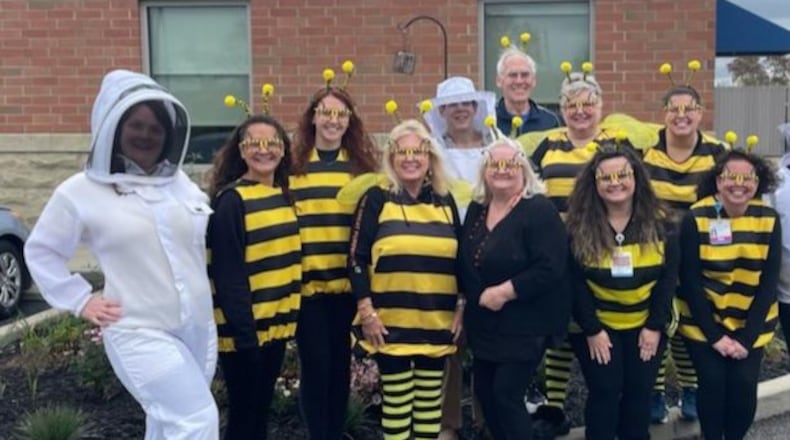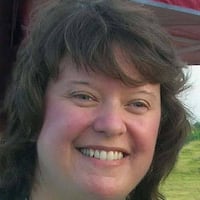“I started working on it on the weekends by planting perennials like Milkweed, Rudbeckia, and Sunflowers,” said Quick. “Before and after work, I’d be out there watering and weeding. We tried to stick with native plants, but there are a few others in there that I like, so they went in.”
About two years ago, Dr. Quick, a primary care physician at the Premier Physician Network practice and a passionate beekeeper, began transforming the mulch bed outside her office into a pollinator-friendly space that includes lilies, Bee Balms, Salvia and Black-Eyed Susan.
Now, the garden is officially recognized as a Monarch Waystation, a certification given to gardens that contain the essential plants needed to support the monarch butterfly’s life cycle and migration.
Overall, there are 10-12 different flower types in the garden, which is about 200-sq. ft.
“I actually learned about Monarch Waystations after we started the garden,” Quick said. “We had Milkweed already but needed more variety. So, we added another species, and our front desk staff member Lisa Spears planted Sunflowers, which helped us meet the final criteria for certification.”
With Quick currently on maternity leave, her colleagues at Trenton Family Medicine have been maintaining the garden by watering, weeding and watching the butterflies and bees make their daily visits.
In addition to nurturing patients, and the garden outside, the staff has been educating the community about pollinators by harvesting Milkweed seeds, packaging them with planting instructions and educational materials, and handing them out to patients and visitors.
“A lot of patients have taken seeds to start planting at their homes. About 30 bags of seeds have gone out,” Quick said.
Quick has been gardening since childhood. She said beautifying the office garden has been “therapeutic” and something she’s taken pride in being able to accomplish.
“My job can be stressful at times, so it’s nice to step outside for ten minutes during my lunch break to pull some weeds, and smell the flowers,” she said. “It’s ended up being a really beautiful thing that a lot of people in the office enjoy, and patients appreciate it, too.”
Her mother, Cathy Erb, and her aunt, Cindy Carter, are avid gardeners, and both of them donated plants for the project. When Quick started the office garden, they took splits from plants at home, and they didn’t have to spend a lot of money on plants. Quick’s mom also helped with some of the planting.
“The Milkweed seeds, interestingly enough, are seeds from my Mom’s plants that have been at her house for 30 years. She got those from the elementary school. Edgewood Elementary is the school right next to us at the office. When my oldest sister, Jessie, was in the third grade, her teacher did a lesson on monarchs, and they planted Milkweed in a cup, and it got my Mom interested in monarchs.
“She kept propagating those seeds, and the Milkweed has been at her place for 30 years. Those seeds are also at my house and in the pollinator garden at the office, right next to the school, so it came full circle,” she said.
Quick grew up just outside of Trenton, and she said becoming a doctor was her “calling.” She graduated from Edgewood High School in 2009. She went to Wright State University for medical school, graduating in 2017, and completed her residency at Miami Valley Hospital in 2020.
Quick will celebrate her fifth year in practice at Trenton Family Medicine in August. She and her husband have two children and reside just outside of Trenton.
“Being a doctor is just something that I have felt I was going to do since I was really little, and I stuck with it,” she said.
Due to the dedication of the staff, the garden is making a big difference for the people and pollinators in the Trenton community.
“It’s neat to see how much interest the patients have taken in the pollinator garden,” Quick said. “Many of them have created their own pollinator gardens at home, so it really has had an impact. It’s not just my little garden anymore. Even tiny spaces and a few plants can make a big difference.”
About the Author



